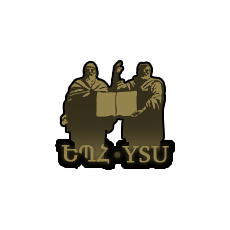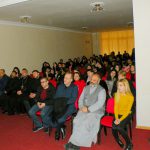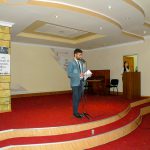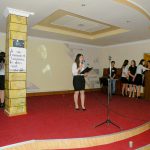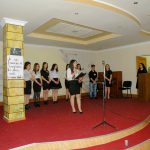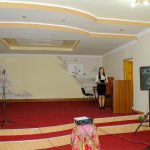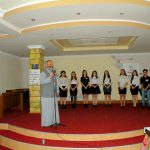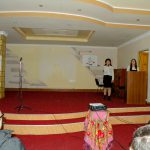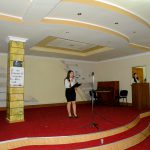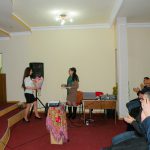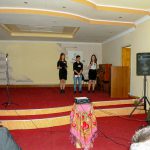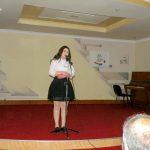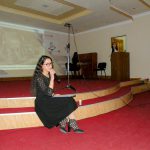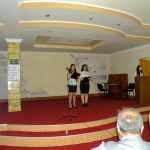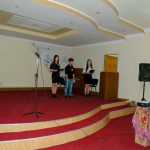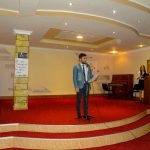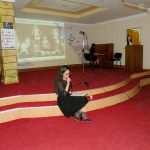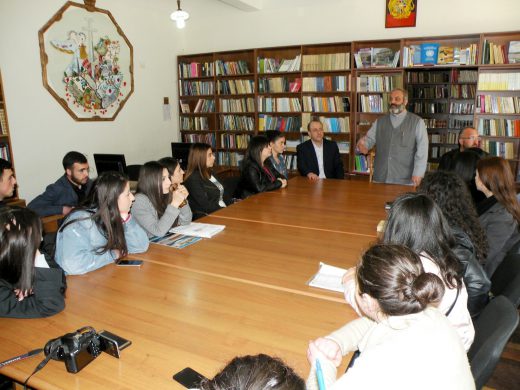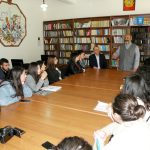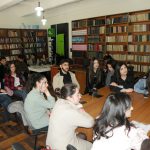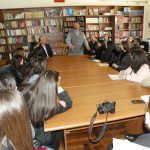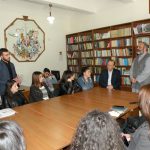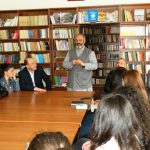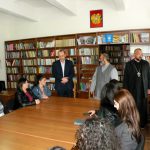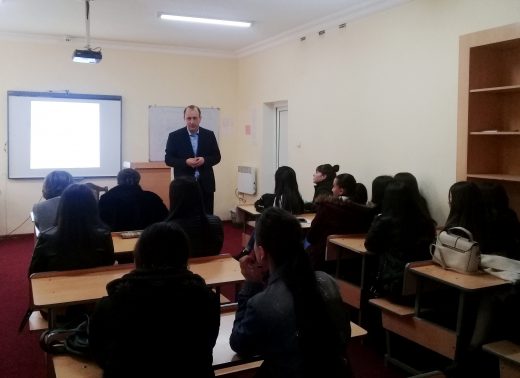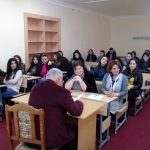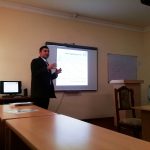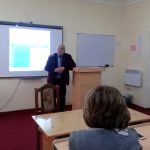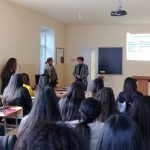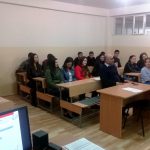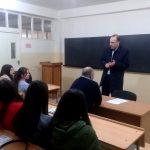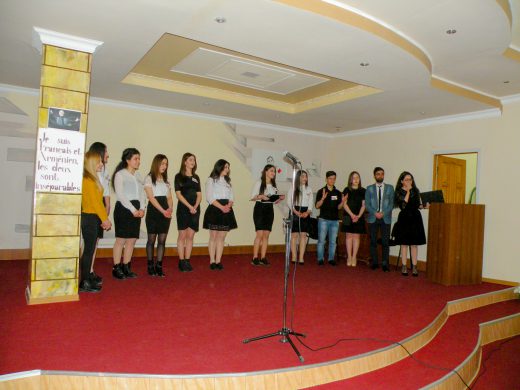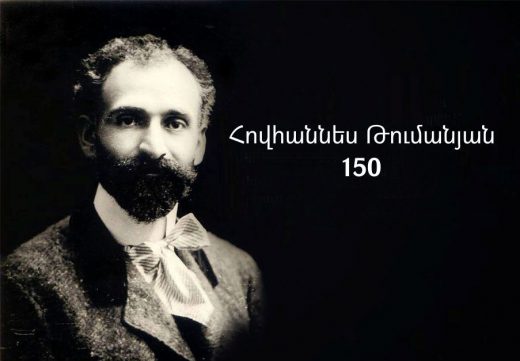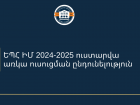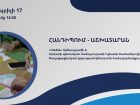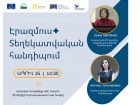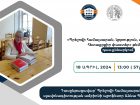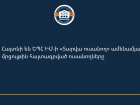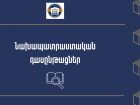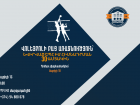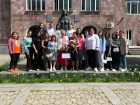Monthly Archives: March 2019
DISCUSSION ON “THE DEADLY SIN OF SLOTH” AT YSU IJEVAN BRANCH
On March 27, 2019, YSU Ijevan Branch Library hosted a lecture on “The Deadly Sin of Sloth”, conducted by the Bishop of Tavush Diocese, Bishop Bagrat Galstanyan.
The discussion was attended by Acting Director of YSUIB A. V. Tsutsulyan, representatives of administrative and professorial staff, clergymen of Tavush Diocese; priest Arakelyan Ter Simeon, priest Tovmas Arakelyan, students of different specialties.
During the discussion, Bagrat Bishop Galstanyan touched upon the types of sins which, according to will, could be intentional and unintentional, according to conscious, conscious and unconscious. If unintentional sins were forgiven or easily forgiven, it was most difficult to forgive intentional and conscious sins, of which seven deadly sins were particularly hateful to God and the saints.
It was emphasized that sloth was classified among seven deadly sins (1. pride, 2.envy, 3. wrath, 4.sloth, 5. greed, 6. gluttony, 7. lust.
Series of deadly sins or the like were slander, sorcery, blasphemy, bossiness, insincerity, deceitfulness, greed, selfishness, naughtiness, cunningness, mockery, betrayal.
To the students’ question, which was the main means of overcoming the state of sloth, the speaker replied: “One of the ways to get out of laziness is planning to have power over time, how you manage your time” Bagrat Bishop Galstanyan added that the work (acting, creation) was a divine blessing, he urged the students stop being lazy, to step in, to act, to create, to train both the body and the mind.
After all, as you sow, so shall you reap, namely your deeds, good or bad, would repay you in kind.
Mr. Tsutsulyan added that if God was in every human being, and God was “THE CREATOR” then man employed that divine ability to create.
THE RESULTS OF STUDENTS’ RESIDUAL KNOWLEDGE TESTING SUMMED UP
On March 19-26th, 2019, YSUIB Professional Education Quality Assurance Department conducted discussions with students on residual knowledge testing results.
In February, residual knowledge testing was conducted among 10 I-III courses of about 9 specialties in three departments (Faculty of Natural Sciences, Faculty of Humanities and Faculty of Economics). This was the first experiment in the residual knowledge testing at YSUIB and the departments were approaching quite seriously to the content of issues included in the testing options. The testing aimed to highlight the effectiveness of the educational process, to identify students’ achievements, and to assess the level of basic knowledge, skills and abilities required for their further professional activities. Residual knowledge, by the way, is the minimum resource that a student must accumulate on the basis of the current requirements of the curriculum and his/her capabilities.
The results of the residual knowledge testing were collected, discussed and analyzed by YSUIB Professional Education Quality Assurance Department. The results, during the analysis were compared with the module or the average grade of the course and the student’s average grade point, that made it possible for each student to find out the dynamics of his/her achievements.
After analyzing these findings and summarizing the courses, the Department of Professional Education Quality Assurance has organized discussions with students on residual knowledge testing in March.
The meeting-discussions were attended by Acting Director of the Branch A. V. Tsutsulyan, deans of the faculties, heads of departments, educational program managers and lecturers. The meetings were held with separate faculties. The meetings aimed to discuss the results with the students, to hear their opinions on the form, timing, content and overall importance of the testing.
Students’ observations were also interesting referring to the content of the versions, the questions and issues involved. For example, students of the Faculty of Economics suggested including several topics in the tests, and only general and exhaustive questions without specific formulas and detailed data.
There were numerous suggestions on the date of residual knowledge testing. Students suggested conducting residual knowledge testing at the 2nd or 3rd year course or within 1-2 months after completing the module.
Students got acquainted with German psychologist Hermann Ebbinghaus’s “forgetting curve”, who obtained this experimental study of human memory in 1885. The students got acquainted with the curve and its conclusion, that in order to effectively remember it was necessary to repeat the material. The meetings were quite interesting and meaningful, and the students’ active participation was impressive, and they were encouraging to express their views. It is noteworthy that carrying out residual knowledge testing, in the opinion of the students, is important and should be continuous. At the end of the meetings, the staff of Professional Education Quality Assurance Department suggested Deans, Heads of Departments and Educational Program managers to meet with students and lecturers and present their proposals on how to organize residual knowledge testing, training, its timing, evaluation and content options.
LITERARY-MUSICAL EVENT DEDICATED TO CHARLES AZNAVOUR
On March 26th, 2019, within the framework of the events dedicated to Francophonie Days in Armenia, YSU Ijevan Branch hosted a literary-musical event dedicated to the great chansonnier Charles Aznavour organized by Sveta Ohanyan, lecturer of the French Language and Literature Department.
The event was attended by representatives of YSUIB administrative and professorial staff, students of “Foreign Language and Literature”, “Elementary Pedagogy and Methodology” and “Design” specialties. The design of the hall was provided by Nonna Alaverdyan and Diana Dallakyan, 2nd year students of “Design” and Elmira Kostanyan, student of “Foreign Language and Literature” specialty.
Gurgen Dalyan, 3rd year student of “Design” specialty, opened the literary-musical event dedicated to the RA National hero, renowned French-Armenian singer, songwriter, artist, public figure, the Great Charles Aznavour with a brilliant performance of the song “La Boheme”.
During the event, Charles Aznavour’s biography was presented in French and Armenian translation. Particularly, it was mentioned that though the great Armenian was born and raised in France, he was irrevocably linked to his homeland, Armenia. For the first time Aznavour arrived in Armenia in 1963 and later in 1988. For about 30 years after that tragic event, Aznavour provided his humanitarian assistance to Armenia.
Songs from the most famous works of Aznavour were performed- “Mother”(La Mamma), “Me and you (Moi et toi)”, “A life of Love (Une vie d’amour)”, “For You Armenia”(Pour toi Arménie) as well as a poems accompanied by piano were also performed “No, I could never forget” (Je n’ai rien oublié), “I’m waiting for you (Je t’attends)” and “They fell” (Ils sont tombés) dedicated to the victims of the Armenian Genocide.
The participants highlighted the idea that Aznavour, who, according to Missak Manouchian, became Armenia’s honor and glory of France, would always remain with us, in our hearts.
At the end of the event, YSU Ijevan Branch Acting Director A. V. Tsutsulyan and Bishop Bagrat Galstanyan delivered a speech, conveying their gratitude to all the organizers and participants for such a high-level event.
The photos of the event are available in the gallery.
INVITATION TO THE REPUBLICAN CONFERENCE DEVOTED TO THE 150TH ANNIVERSARY OF HOVHANNES TUMANYAN
On February 19th,2019 marks the 150th anniversary of the greatest Armenian writer, poet and public figure Hovhannes Tumanyan.
In this connection, on May 11, 2019, Ijevan Branch of “Yerevan State University” Foundation, the Department of Armenian Language and Literature, Faculty of Humanities organizes a republican conference dedicated to Hovhannes Tumanyan’s 150th anniversary.
Armenian scientists, lecturers, post-graduates can apply for the reports at the conference.
Working languages of the conference are Armenian and Russian.
The reports should be in line with the of the conference.
To take part, it is necessary to submit your application and the titles and descriptions (about 150 words) of the reports to the head of Armenian language and literature Department of YSUIB, PhD V. Avagyan e-mail: avagyan.vachik@yandex.com
Application Deadline: April 1, 2019
The application form can be found here.
Reports selected by the organizers of the conference are intended to be printed in a separate article.
The articles should meet the following requirements:
The articles should be presented on A4 format paper, one-sided printed and electronic versions, edges of 2 cm from each side, font type is “Sylfaen”, the distance between lines is 1.5, font size is 12, only titles font size- 14.
The text should not contain rows and duplicates.
The volume of the article should be up to 9 pages including bibliography and summaries in 2 languages (for Armenian articles in Russian and English and vice versa).
The article should first include the title with capital letters, followed by the surname of the author,then first name and patronymic of the author, the university or organization represented, the academic degree and position of the author.
Then, one line is missed and the main text is given.
Use alignment or italicized lines for highlighting.
Make footnotes in the square bracket according to the source of the literature list (for example [1, page 26]).
The deadline for submitting the final versions of the articles to the organizers of the conference is April 8, 2019.
Send articles to the following e-mail avagyan.vachik@yandex.com.
For additional questions, feel free to contact the Acting Dean of YSUIB Faculty of Humanities K. Poghosyan (Phone .: 093-884-254, e-mail: karine.pogosyan.76@mail.ru), vice-dean of the Department V. Aghababyan (phone., 096 987- 654, E-mail: Vahanagha@yandex.ru), Acting Head of the Department of Armenian Language and Literature V. Avagyan (phone: 094-577-567, 099-577-567, e-mail: avagyan.vachik @ yandex.com).




